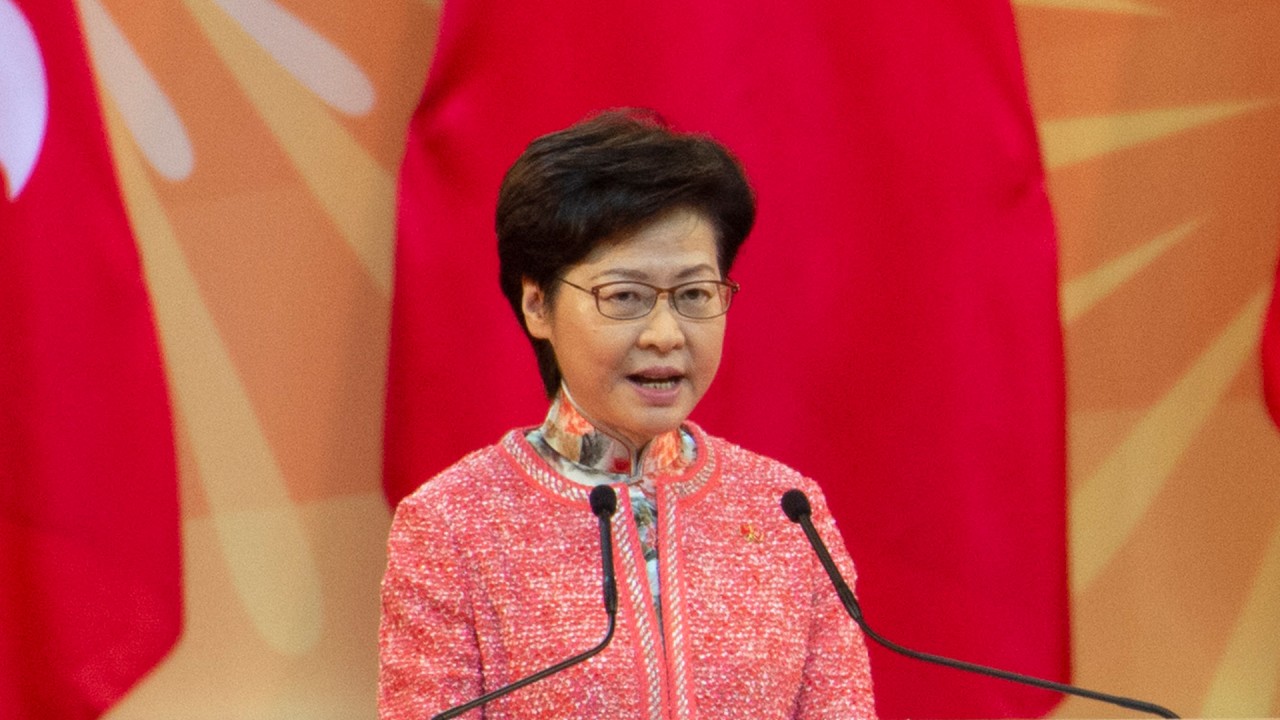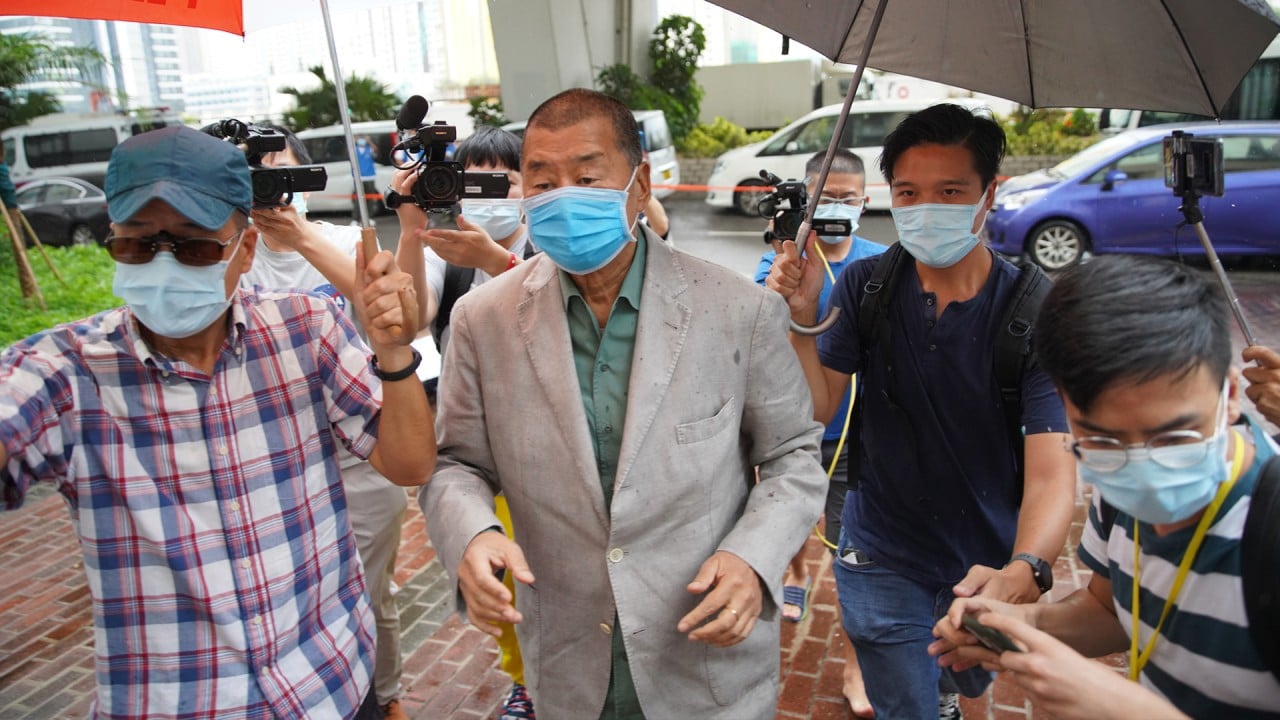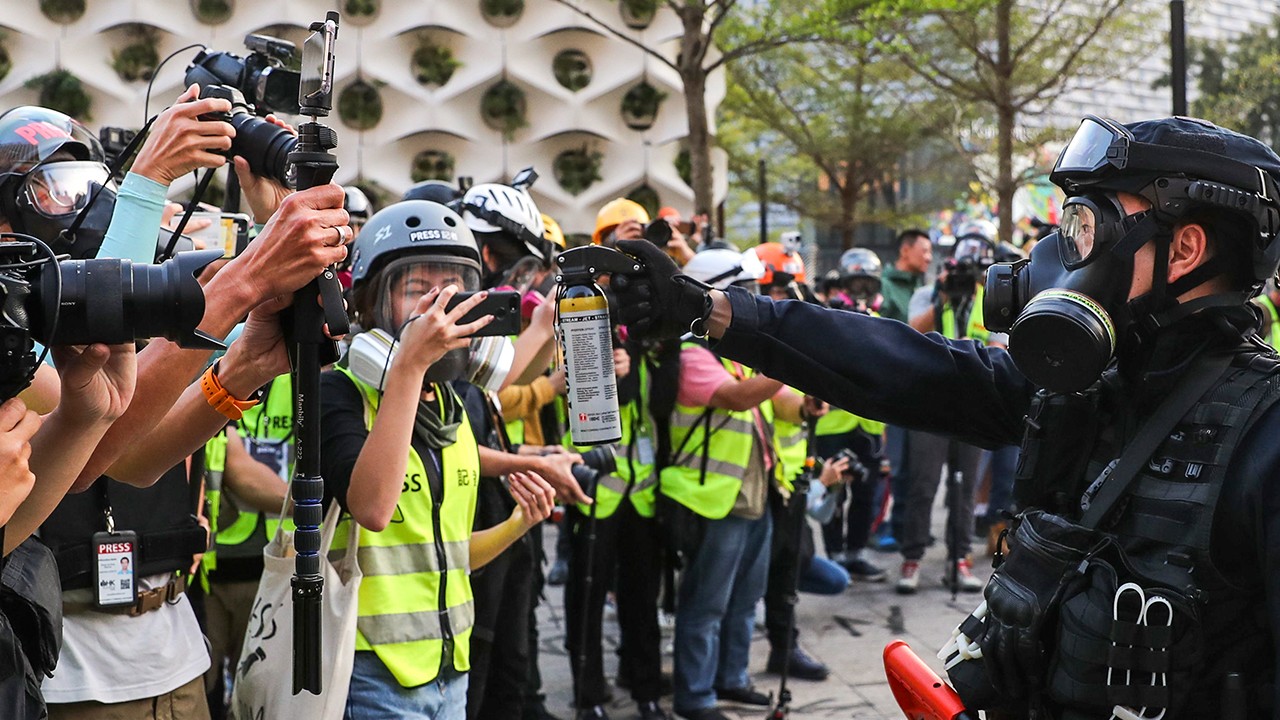
01:28
Hong Kong leader hails 'return to peace' on China's National Day

Much has happened in the three months since the Beijing-drafted national security law was promulgated in Hong Kong amid widespread concern about its effect on human rights, in particular on the freedom of speech and press.
On July 1, the day after the law came into effect, a reporter asked Chief Executive Carrie Lam Cheng Yuet-ngor whether it was “legal or a crime to criticise the national security law”?
Lam pondered and said: “Criticism – it comes under freedom of speech.” She pointed out that the law provides safeguards for both national security and human rights.
“But,” she clarified, “some of these human rights enjoyed by individuals under the international covenants are not absolute” and they “could be restrained in accordance with the law”. “If individuals … are discharging their role and they feel that something is not right, they want to criticise, I don’t see why that will become an offence.”
The impact of the security law on media is potentially huge. Article 9 stipulates that the government “shall take necessary measures to strengthen public communication, guidance, supervision and regulation over matters concerning national security, including those relating to schools, universities, social organisations, the media and the internet.”

01:28
Hong Kong leader hails 'return to peace' on China's National Day
This is a sweeping directive from the central government, calling on the Hong Kong authorities to take action in various spheres, specifically including the media.
It is worrying that Lam refused to answer directly whether this law limits the right of journalists to report.
At a July 7 press conference, a reporter, referring to letters from the Foreign Correspondents’ Club to Lam, asked if she could guarantee that journalists are free to report on any topic they saw fit under the security law. She gave an odd response.
“If the Foreign Correspondents’ Club or all reporters in Hong Kong can give me a 100 per cent guarantee that they will not commit any offences under this piece of national legislation, then I can do the same,” Lam said. “It is not a question of me standing here to give you a guarantee of what you may or may not do in the days and weeks and years ahead. The law has clearly defined the four types of acts and activities which we need to prevent, curb and punish in accordance with the law. That’s my response to the reporters.”

02:24
Apple Daily founder Jimmy Lai cleared of threatening reporter from rival Hong Kong newspaper
What does this mean? In free societies, people can do anything not forbidden by law; in other societies, they can only do what the law allows them to do. But in Hong Kong, it seems, whether it may be an offence to report on certain issues cannot be disclosed.
By not answering the question, she left journalists in the dark as to whether there are now areas they are not to cover.
And now we have the police, their powers enhanced by the national security law, redefining who is and isn’t a reporter.
The effect of amending the definition of “media representatives” in the Police General Orders is that only certain journalists – from organisations registered with the government – will be recognised.
Unsurprisingly, the government was quick to back the police, with Chief Secretary Matthew Cheung Kin-chung saying press freedom will not be undermined.
One big problem with this change is that it left out the many journalists who freelance.

04:52
Hong Kong journalists protest against police’s new definition of ‘media representative’
As the Foreign Correspondents’ Club noted: “Many journalists now operate as freelancers, some working regularly for specific organisations, and many others offering their stories and videos to multiple outlets ‘on spec’. News outlets have come to rely on freelancers due to the changing economics of the industry.”
However, because they are not associated with a media corporation recognised by the government and the police, they cannot obtain registration.
Lam has repeatedly insisted that human rights are enjoyed by individuals in Hong Kong – this should certainly include freelance reporters and photographers.
Media freedom is not the only criteria for human rights. But in prioritising media corporations over unaffiliated journalists, the police and the government have missed what human rights are all about.
Frank Ching is a Hong Kong-based writer and commentator.